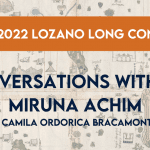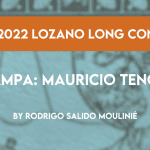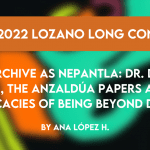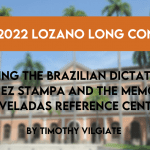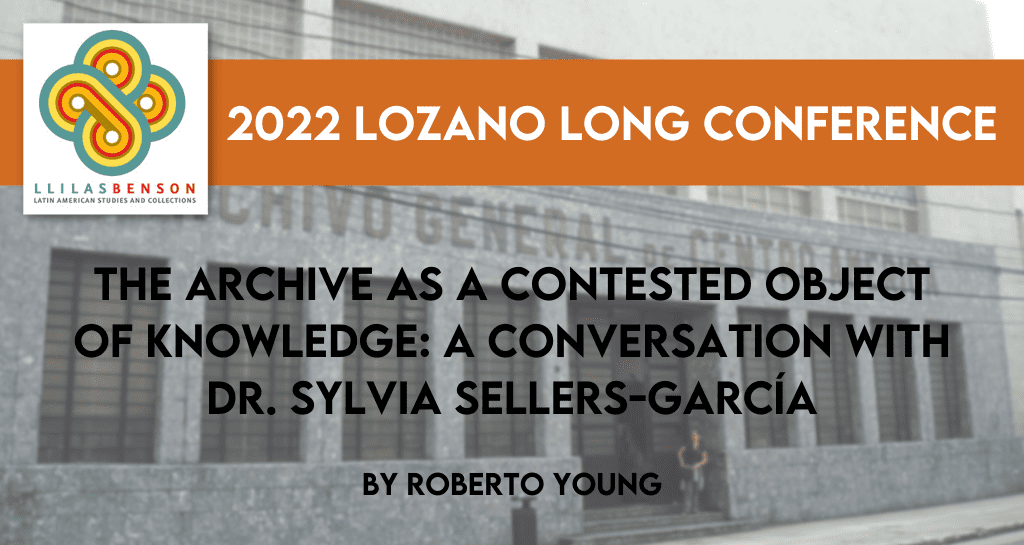
by Roberto Young
In honor of the centennial of the Nettie Lee Benson Latin American Collection, the 2022 Lozano Long Conference focuses on archives with Latin American perspectives in order to better visualize the ethical and political implications of archival practices globally. The conference was held in February 2022 and the videos of all the presentation will be available soon. Thinking archivally in a time of COVID-19 has also given us an unexpected opportunity to re-imagine the international academic conference. This Not Even Past publication joins those by other graduate students at the University of Texas at Austin. The series as a whole is designed to engage with the work of individual speakers as well as to present valuable resources that will supplement the conference’s recorded presentations. This new conference model, which will make online resources freely and permanently available, seeks to reach audiences beyond conference attendees in the hopes of decolonizing and democratizing access to the production of knowledge. The conference recordings and connected articles can be found here.
En el marco del homenaje al centenario de la Nettie Lee Benson Latin American Collection, la Conferencia Lozano Long 2022 propició un espacio de reflexión sobre archivos latinoamericanos desde un pensamiento latinoamericano con el propósito de entender y conocer las contribuciones de la región a las prácticas archivísticas globales, así como las responsabilidades éticas y políticas que esto implica. Pensar en términos de archivística en tiempos de COVID-19 también nos brindó la imprevista oportunidad de re-imaginar la forma en la que se llevan a cabo conferencias académicas internacionales. Como parte de esta propuesta, esta publicación de Not Even Past se junta a las otras de la serie escritas por estudiantes de posgrado en la Universidad de Texas en Austin. En ellas los estudiantes resaltan el trabajo de las y los panelistas invitados a la conferencia con el objetivo de socializar el material y así descolonizar y democratizar el acceso a la producción de conocimiento. La conferencia tuvo lugar en febrero de 2022 pero todas las presentaciones, así como las grabaciones de los paneles están archivados en YouTube de forma permanente y pronto estarán disponibles las traducciones al inglés y español respectivamente. Las grabaciones de la conferencia y los artículos relacionados se pueden encontrar aquí.
Dr. Sylvia Sellers-García was one of the contributors to the 2022 Lozano Long Conference which was held in honor of the centennial of the Nettie Lee Benson Latin American Collection. The following is based on a conversation with Dr. Sellers-García about her work and how it relates to the themes of the conference.
Dr. Sylvia Sellers García is a colonial historian of Latin America whose work focuses on violence and policing in colonial Guatemala. Before earning her Ph.D. in History from the University of California, Berkeley she received an M.Phil. in Latin American Studies from the University of Oxford and a B.A. in Comparative Literature from Brown University. Sellers-García’s debut novel, When the Ground Turns in its Sleep (Riverhead Books, 2007), was recognized as the 2008 Julia Ward Howe Book Award winner. Her most recent book, The Woman on the Windowsill: A Tale of Mystery in Several Parts (Yale University Press, 2020), won the James P. Hanlan Book Prize from the New England Historical Association. She currently is Professor of History at Boston College.
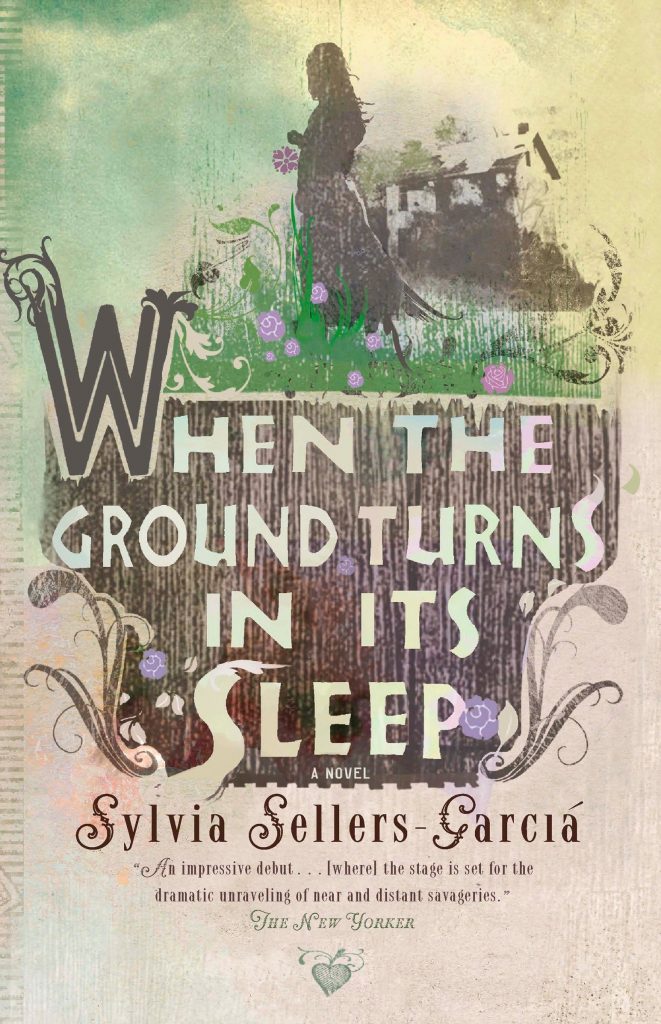
In her article, “Biography of a Colonial Document” (Oxford University Press, 2016), Sellers-García explores the obscured backstories of archives and their contents in order to demystify their enveloping structures. Colonial documents are materialized representations of the social worlds in which they originated. This broader perspective on archives and their contents offers a dialectic rearticulation of the 2022 Lozano Long Conference theme that examines the archive itself, as a contested object of knowledge.
When asked why she feels drawn to repeatedly return to the archives for research, Sellers-García shared that their alluring quality derives from the ability of colonial documents to make the strange familiar and the familiar strange. While such documents may appear “transported from a different world,” one simultaneously feels a “total connection” that makes the expressed sentiments feel humanly relatable and temporally congruent. This alluring juxtaposition fuels a repeated journey through the never-ending labyrinth of questions sustained by the archive as both producer and product of knowledge.
Conceptualizing the archive as a contested object of knowledge implicates the archive in the extractive commodification of academic knowledge production. At first glance, colonial archives may appear temporally distanced from the extraction of contemporary testimony of massacre survivors and its subsequent processing into a finished research product. However, the formation and institutionalization of archives, such as the Archivo General de Centro América (AGCA), can also be rooted in colonial hierarchies of knowledge. For Sellers-García, such geopolitical inequalities of research highlight the continued relevance of centering power in the contextualization of archives and their contents.
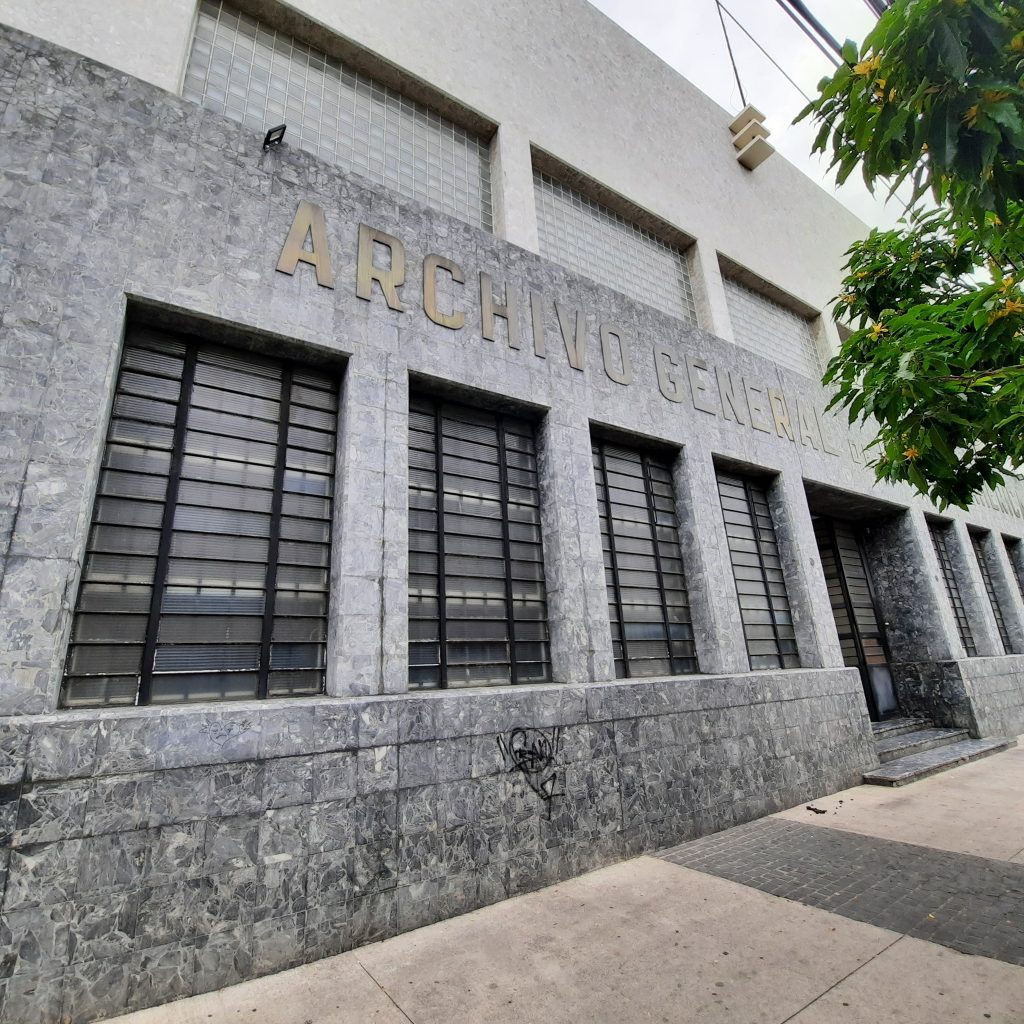
Archives and Digitization
The value of centering power is even more relevant in the current digital age. At a time of technological hegemony, researchers have sought to infuse archival and historical research with digital technologies. In her graduate course, “Archives and Sources,” Sellers-García engages students in a dialogue about digitization in and of archives. These discussions elucidate tensions between increased digital accessibility, on one hand, and decreased support for repository institutions, on the other.
The transition to digitization requires us to consider the potential of digitization to deepen accessibility divides and produce additional economic burdens. For Sellers-García, this raises three foundational questions about digitization in archives: First, how does the digitization happen? Second, whom does it give access to? Third, how does it change the broader field of what gets studied? The last query is particularly relevant to the case of studying colonial documents at the AGCA in Guatemala, which will likely not be able to fully digitize its collections “in the next 50 years if ever.” This is different from many archives in the U.S. that are fully digitized. For Sellers-García, this makes it more likely that issues related to the AGCA in Guatemala will receive less study. If current digitization trends continue to reflect global inequalities of power, where research on Germany can be conducted free of charge from home while research on Guatemala incurs exuberant financial burden, the limited breadth of what is studied in the field of history will deepen existing archival silences.
This is not, however, to suggest that the materiality of objects should be fetishized. Instead, deeper questions persist about who loses when we win? Digitization is a major win for increased accessibility, but, if not done so equitably, many less studied archives will still lose out by being even less accessible than before. Digitization in archives without democratization can reflect and reproduce unequal Eurocentric knowledge production.
Archives and Representation
When recentering power by writing from archives about the lives of the people within, another tension arises: how to disrupt the legacy of historical erasure while not tokenizing the shared stories as perfected archival rescue? For Sellers-García, a response to this question originates from a point of respect that recognizes, from the beginning, the valuable but limited exercise of amplifying hidden stories in the archives. While “there is no benefit in repeating the omission or erasure” that often accompanies marginalized voices in the archives, it is also unproductive to speak beyond the extent of the archival record. For example, in her most recent book, The Woman on the Windowsill: A Tale of Mystery in Several Parts (Yale University Press, 2017), Sellers-García tells the story of a woman whose cadaver is mutilated and publicly displayed in colonial Guatemala City. It was important for Sellers-García to make space for the name of this woman, but not to exaggerate the written record and speak beyond it to comment on “her mindset or the grief that she might have been going through with the loss of her child.” The experience of writing this book was personally revelatory for Sellers-García in recognizing the boundaries of attempting to amplify marginalized stories from the archival record.
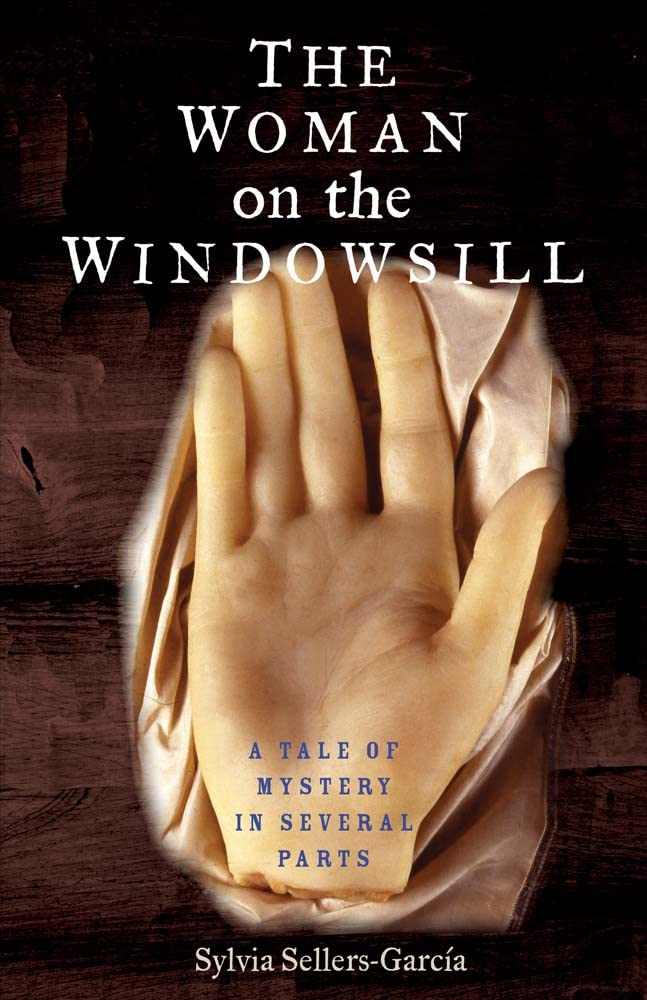
In addition to being a historian, Sellers-García is also a fiction writer. In her award-winning debut novel, When the Ground Turns in its Sleep (Riverhead Books, 2007), Sellers-García combines historical and fictional narratives to write from and beyond the archives. This approach contests the boundaries of archives whose documentation of the past retains traces of the present. Sellers-García’s work as a historian and fiction writer centers power in examining the archive itself as a contested object of knowledge.
Roberto Young is a Latin American Studies M.A. student in the Teresa Lozano Long Institute of Latin American Studies at the University of Texas at Austin. His research examines modern Guatemalan history focusing on the politics of Kaqchikel Maya language revitalization from 1984-2011. He previously served as a Digital Scholarship Graduate Research Assistant with the Digital Initiatives Unit at the Nettie Lee Benson Latin American Collection. His work included curating an exhibit on Cold War history in Guatemala, creating bilingual guides for digital tools, and compiling metadata for Benson collection materials.
The views and opinions expressed in this article or video are those of the individual author(s) or presenter(s) and do not necessarily reflect the policy or views of the editors at Not Even Past, the UT Department of History, the University of Texas at Austin, or the UT System Board of Regents. Not Even Past is an online public history magazine rather than a peer-reviewed academic journal. While we make efforts to ensure that factual information in articles was obtained from reliable sources, Not Even Past is not responsible for any errors or omissions.
